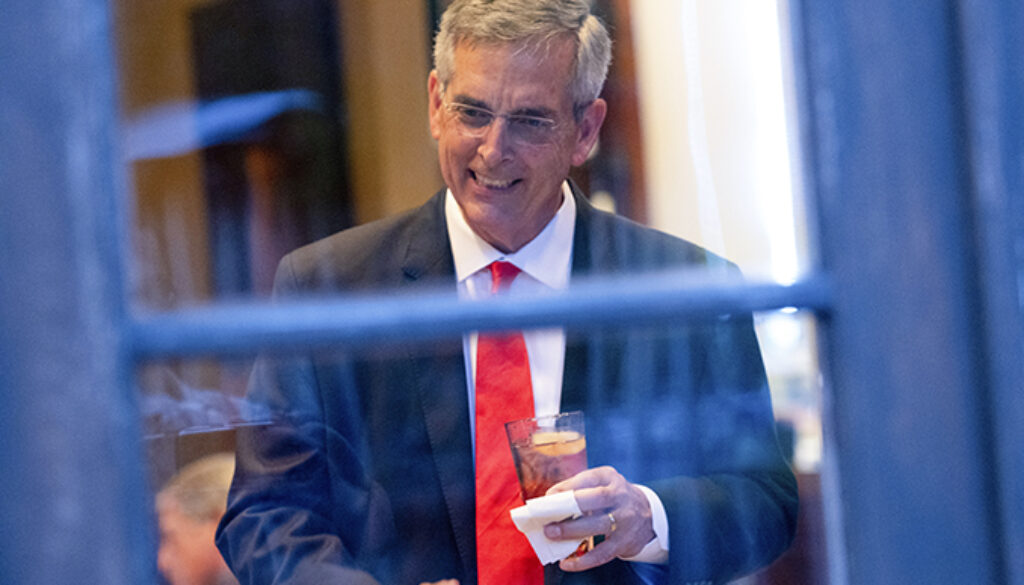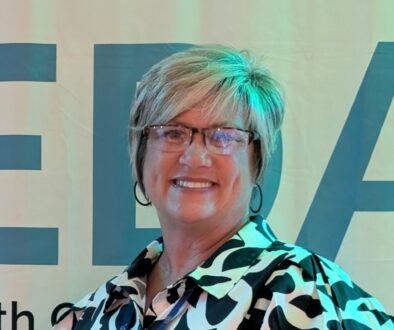Democrats voting in GOP primaries might have tilted results in some races
WASHINGTON, D.C. — An Associated Press analysis of early voting records found more than 37,000 people who voted in Georgia’s Democratic primary two years ago cast ballots in last week’s Republican primary, an unusually high number of so-called crossover voters. The data reveal crossover voters were consequential in defeating Donald Trump’s endorsed candidates for secretary of state and, to a lesser extent, governor in the Peach State.
Gov. Brian Kemp did not ultimately need Democrats in his blowout victory against his Trump-backed opponent, but Secretary of State Brad Raffensperger probably did. The Republican secretary of state cleared the 50% threshold required to avoid a runoff election by just over 27,000 votes. Based on early voting data alone, 37,144 former Democrats voted in the Republican primary. The total number of crossovers including Election Day votes, set to be revealed in the coming weeks, may be even higher.
Crossover voting is not exclusive to Georgia. The phenomenon is playing out in multiple primary contests, sometimes organically and sometimes in response to a coordinated effort by Trump’s opponents.
There is nothing illegal about crossover voting. Dozens of states make it legal for voters to participate in either party’s primary.
Trump warned conservatives about crossover voting while campaigning Saturday in Wyoming, another state where the former president’s opponents are calling for Democrats to intervene — this time to help save Rep. Liz Cheney from a Trump-backed primary challenger.
“Don’t let the Democrats do what they did in another state last week,” Trump told Wyoming supporters, complaining about what happens “when you allow Democrats to vote in a Republican primary.”
While the practice has Trump’s attention, it is often ineffective.
On the forefront of the crossover movement, Rep. Adam Kinzinger (R-Ill.) has called for an “uneasy alliance” between Democrats, independents and Republicans to take down pro-Trump candidates in GOP primaries whenever and wherever possible. Some states have open primaries like Georgia that allow people to vote in either primary, while other states have more restrictive rules.
In an interview, Kinzinger said he was pleasantly surprised by the Democrats’ response in some races. He said he never expected the movement to be an “earth-shattering game-changer” right away.
Kinzinger’s political organization, Country First, targeted thousands of former Georgia Democrats with mailers and text messages urging them to support Raffensperger for the sake of democracy.
Trump allies in the state, caught off guard by the crossover trend, were furious.
“It was a Democratic version of ‘Operation Chaos,’” said Debbie Dooley, president of the Atlanta Tea Party, referring to the secret Nixon-era push to infiltrate liberal groups. “I did not realize just how heavily the Democrats were going to cross over.”
Dooley launched a petition late last week to close Georgia’s Republican primaries to non-Republicans. More than a dozen states have closed, or partially closed, primaries that block members of opposing parties from participating.
Meanwhile, Kinzinger said he’s already crafting plans to execute a similar playbook in coming primaries in Michigan, Wyoming and Alaska. In addition to helping Sen. Lisa Murkowski, the Alaska Republican who voted to convict Trump in his second impeachment trial, Kinzinger said he’s weighing whether to invest resources in trying to block former Gov. Sarah Palin’s congressional bid.
 Twitter
Twitter Facebook
Facebook Instagram
Instagram


